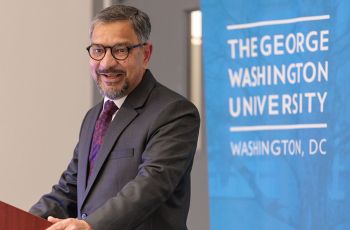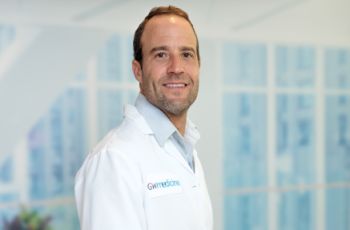The George Washington University (GW) is pleased to announce that the GW Biorepository is now a core facility. Housed at the GW School of Medicine and Health Sciences, the GW Biorepository received designation as a shared resource available to all GW investigators and is accredited by the College of American Pathologists.
The GW Biorepository is a comprehensive, state-of-the-art resource for bio-specimen processing, storage, and disbursement designed to help today's leading investigators facilitate their research. In existence since 1994, the GW Biorepository is funded by the National Cancer Institute and includes 100,000 specimens from various NIH-funded cooperative projects, including the AIDS and Cancer Specimen Resource, the AIDS Malignancy Consortium, Women's Interagency HIV Study, and START Insight.
The facility's director, Sylvia Silver, DA, and associate director, Jeffrey Bethony, PhD, both professors of microbiology, immunology, and tropical medicine at the GW School of Medicine and Health Sciences, can be contacted for more information and costs at ssilver [at] gwu [dot] edu ( ssilver[at]gwu[dot]edu ) and jbethony [at] gwu [dot] edu (jbethony[at]gwu[dot]edu). The GW Biorepository is located in Ross Hall, rooms 118 and 119. It is electronically monitored to ensure proper environmental conditions for specimens.
Much of the infrastructure to support GW research is organized in scientific cores meant to facilitate discovery. These facilities offer a wide range of services, including cutting-edge technologies and high-end instrumentation coupled with technical support for research. In addition to the GW Biorepository, shared resources available to all GW investigators, often for a fee-for-service charge, include:
- Research Pathology Core Laboratory
- Nanofabrication and Imaging Center
- Animal Research Facility
- Flow Cytometry Core Facility
- Biostatistics Center
- McCormick Genomic and Proteomic Center
- Biomarker Discovery and Analysis Facility
For more information on the GW Biorepository, visit smhs.gwu.edu/mitm-gwbiorepository/.
This announcement was provided by the GW School of Medicine and Health Sciences.



